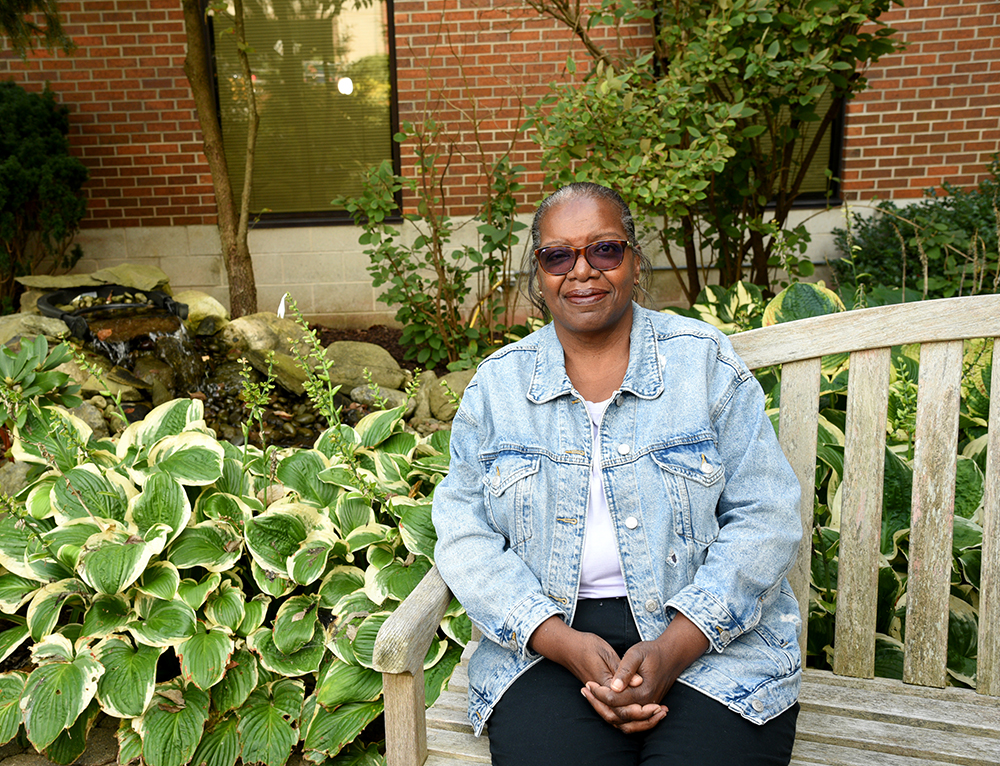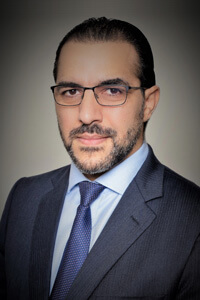Thursday, November 2, 2023
A Stroke of Luck
Wanda Reeder, a 33-year employee at MidHudson Regional Hospital (MHRH) of Poughkeepsie, a member of the Westchester Medical Center Health Network (WMCHealth), celebrated the one-year anniversary of her life being saved at work by sending her co-workers lunch and giving her supervisor, Jennifer Harrington, a plant. She almost hadn’t come into work that morning a year earlier; the night before she had experienced sharp shooting pains in her head and when she woke the next day, she still didn’t feel very well. “I had shooting pains, was very tired, and felt off balance,” she recalls. “I was going to call in sick but I decided to go in and call my doctor from work. Thank goodness I did; otherwise, I might have died in my bed.”

On that morning a year prior, Reeder, 60, an authorization representative at MidHudson Regional Hospital, was in Harrington’s office asking her a few questions. “Jenn noticed my face was sagging and that my words were all jumbled,” she says. “And I had trouble keeping my head up.” Harrington called for a hospital Rapid Response Team who in turn called an internal Code Stroke. After undergoing a CT scan and being transferred to the ER’s trauma room, Reeder was airlifted a 20-minute helicopter ride away to Westchester Medical Center (WMC), which has the only comprehensive stroke center in Westchester and the Hudson Valley.
There she was seen by neuroendovascular surgeon Fawaz Al-Mufti, MD, who noted her slurred speech and paralysis on the left side and diagnosed her with a massive ischemic stroke.
What is a stroke?
 |
| Ji Chong, MD |
“A stroke is a blockage in the blood vessel supplying the blood necessary for brain survival; the blockage deprives the brain of oxygen,” explains Dr. Al-Mufti. Stroke must be attended to quickly to prevent permanent brain damage or death. There are two different types of strokes, Dr. Al-Mufti continues: hemorrhagic, where there is blood inside the tissue of the brain and ischemic, like Reeder’s, where there is not enough blood getting to the brain. Smoking, having diabetes and/or hypertension, obesity, and being a woman all increase the risk of having a stroke. Smoking cessation, improved nutrition, weight loss, and blood pressure control can all help minimize the likelihood of developing a stroke. To treat Reeder’s condition, Dr. Al-Mufti performed an emergency endovascular thrombectomy. Entering through the patient’s groin and guided by fluoroscopy imaging, he opened up the blockage in the blood vessel located in the right front of her brain by navigating a catheter in an about one-hour procedure. Eight days later and entering through the patient’s wrist, he performed a one-hour carotid artery stenting procedure to clean out the plaque in that artery so that the blood supply to the right side of her brain was restored. Reeder was discharged and now sees WMCHealth neurologist Ji Y. Chong, MD annually.
Reeder returned to work three months after suffering her stroke. “I had an excellent recovery,” she says. “Today I feel good and so happy to have survived, thanks to Jennifer and all my co-workers who knew what to do and treated me like royalty.” Her advice to others? “Pay attention,” she says. “When in doubt, call your doctor and don’t second guess yourself. I’m a success story because I had the best care and the best doctors.”
“Stroke is a very time-sensitive disease and every minute makes a difference,” adds Dr. Al-Mufti. “This is a disease you don’t want to wait on,” he continues. “Two million brain cells die every minute the brain goes without blood.” He uses the acronym BE-FAST to help those who are trying to determine if someone is having a stroke by assessing their symptoms. B stands for balance (Is patient suddenly having balance issues?); E stands for eye (Is patient having double vision or a sudden vision loss?); F stands for facial droop on one side (Ask the patient to smile); A is for arm weakness (Ask patients to raise both their arms in the air); S is for slurred speech (Ask the patient to repeat a simple sentence like, “Today’s a beautiful day.”); and finally T is for “time to call 911.”
Dr. Al-Mufti’s advice to someone who isn’t sure whether they are having a stroke? Don’t take a risk—err on the safe side and get yourself evaluated by a medical professional as soon as possible. “Stroke is like a forest fire,” he says. “It starts small and burns a few trees. But if you waste time by not listening to your symptoms or not going to the correct kind of medical center, it can take the entire forest.”
Prevention is crucial when it comes to stroke, he adds. “Controlling risk factors like blood pressure, cholesterol, diabetes, and obesity, together with smoking cessation, an increase in activity and healthy diet are key factors in the ongoing effort to reduce stroke morbidity and mortality.” The good news is that with better blood pressure control and greater awareness of the negative effects of smoking and obesity, the incidence of stroke in this country is decreasing, says Dr. Al-Mufti. And, he adds, there are more advances on the horizon with the implantable devise future looking especially bright.
Dr. Al-Mufti calls Reeder’s prognosis excellent. “She is very fortunate that her stroke was witnessed and that the people who did so were able to act so quickly.” Since then, Reeder stopped smoking cold turkey and changed her eating habits, losing about 30 pounds. She also exercises using a stationary exercise bike. Her favorite activities include reading, travel, and especially hanging out with her five grandchildren.
 |
| Fawaz Al-Mufti, MD |
WMCHealth Hospitals Recognized for Exceptional Stroke Treatment
Since Wanda’s experience, MidHudson Regional Hospital is now certified in Thrombectomy, an advanced and potentially lifesaving procedure used in emergent stroke care.
MidHudson Regional Hospital in Poughkeepsie and HealthAlliance Hospital in Kingston, members of WMCHealth, have both been awarded the American Heart Association/American Stroke Association awarded the Get With The Guidelines® Stroke Gold Plus Quality Achievement Award. This award was also earned by Westchester Medical Center in Valhalla and Good Samaritan Hospital in Suffern.
HealthAlliance Hospital received additional accolades achieving the Target Stroke Honor Roll for meeting separate quality measures developed to reduce the time between the patient’s arrival at the hospital and treatment. The awards recognize the hospitals’ commitment to ensuring that stroke patients receive the most appropriate treatment according to nationally recognized guidelines.
Westchester Medical Center has been certified as a Comprehensive Stroke Center, a designation that represents the most advanced stroke treatment available in a given geographic area. With this certification, Westchester Medical Center, the flagship of Westchester Medical Center Health Network (WMCHealth), is now the only hospital in New York’s Hudson Valley region recognized by the New York State Department of Health as a Comprehensive Stroke Center.
Contact a Stroke Center
Call 911 immediately at the first signs of a stroke. For a non-emergency consultation, call 845.483.5951 for MidHudson Regional Hospital’s Stroke Center in Poughkeepsie or 845.331.3131 for HealthAlliance Hospital’s Stroke Center in Kingston
Neuroscience- Brain and Spine Institute
WMCHealth’s Brain and Spine Institute offers advanced neuroscience services for adults and children in multiple locations. Call to request an appointment:
WMCHealth’s Heart and Vascular Institute
WMCHealth’s comprehensive Heart and Vascular Institute offers advanced cardiovascular care for patients from birth through every stage of life. Offices are conveniently located in Kingston, New Paltz, Poughkeepsie, New Windsor, Carmel, Mamaroneck, Valhalla, Suffern and Garden City. To request an appointment for any of the cardiology services, please call 866.WMC.HEART or 866.962.4327 or visit wmchealthaps.com/heart.